SEEK funding boosts local recreation and future leaders.
By: Jacob Ewing, AWC Special Projects Coordinator
Over the summers of 2021 and 2022, the Washington Office of the Superintendent of Public Instruction (OSPI) partnered with the Washington Recreation & Park Association (WRPA) and AWC to create and administer a $12 million funding program for local parks and recreation initiatives designed to help children and youth reengage with nature, learning, and peers after the impacts of the COVID-19 pandemic.
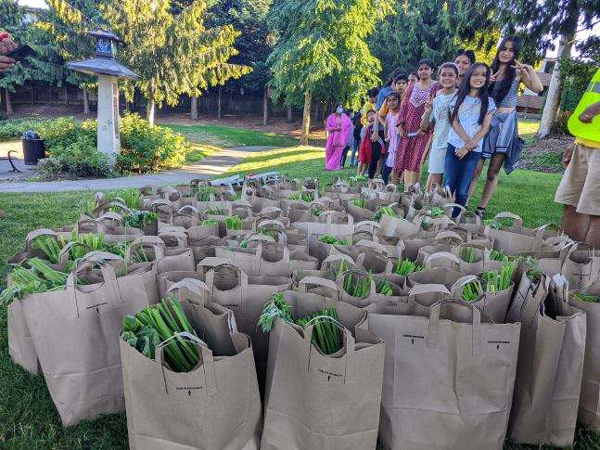
Youth participating in the YERS program received bags of produce from local farms, giving them and their families a chance to cook nutritious food at home.
The funding program, known as the Summer Experiences and Enrichment for Kids (SEEK), was funded through Washington state’s $4.4 billion American Rescue Plan Act (ARPA) allocation. SEEK funds provided communities with a unique opportunity to invest in recreational activities to meet the needs of underserved populations. Some recipients used funds to create mobile parks that brought programming directly to low-income neighborhoods. Other recipients developed field trips and career exploration activities for teens to help them expand their horizons and see what opportunities could be available in the future.
Some recipients used funds to create mobile parks that brought programming directly to low-income neighborhoods. Other recipients developed field trips and career exploration activities for teens to help them expand their horizons and see what opportunities could be available in the future.
Each SEEK-funded program aimed to address the many challenges and hardships Washington youth faced during the pandemic, while also providing them with enriching opportunities to get back outside and engage with their peers. Over the two summers, 113 agencies spread across cities, counties, tribes, and park districts, provided camps, programming, and recreational activities that positively impacted more than 60,000 youth across the state.
Case in point: the City of Tukwila, a beautiful suburban community located just south of Seattle in King County. Before its incorporation in 1908, Tukwila was a settlement of the Duwamish Tribe. Since then, the city has grown from a trading outpost to a bustling city of more than 22,000 residents. In 2022, the city received funding for three SEEK programs, including funds to partner with the Bhutanese Community Resource Center (BCRC), a local nonprofit organization.
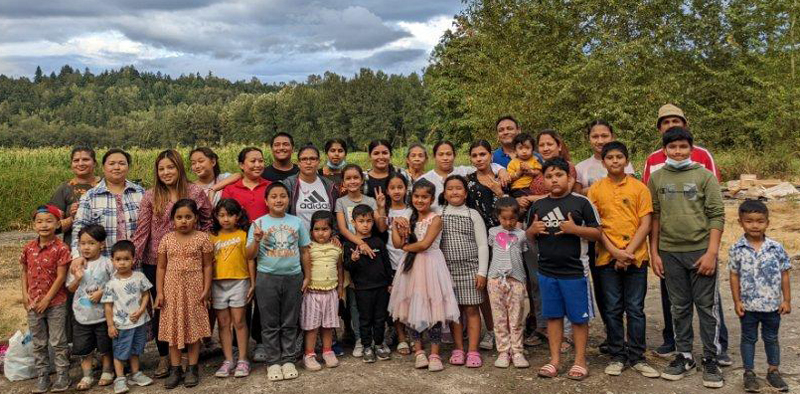
Washington state is home to many Bhutanese families driven out their home country over thirty years ago.
In the 1990s, after the Bhutanese government drove out over 100,000 ethnic Nepalese minorities from Bhutan—many descended from families who had lived in the country for more than two centuries—the U.S. State Department developed a program to help those who were displaced migrate to the United States. Tens of thousands of refugees have since made our country their home over the past 30 years, with hundreds of Bhutanese families settling in Washington state.
To help support the influx of Bhutanese families, established members of the Bhutanese community in Tukwila founded the BCRC to provide direct services (and cultural connection) to refugees living in Tukwila, Federal Way, Des Moines, Kent, Auburn, and Covington. Using SEEK funding, Tukwila and the BCRC provided summer programming for 60 local Bhutanese youth.
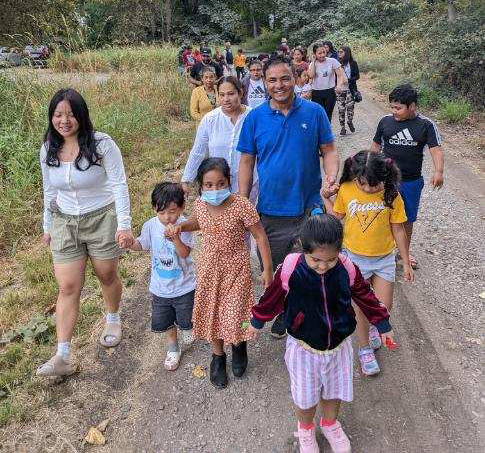
The BCRC was established to help Bhutanese refugees find a source of community and culture. The YERS program focused on helping Bhutanese youth connect with peers from across the region.
Using SEEK funding, Tukwila and the BCRC provided summer programming for 60 local Bhutanese youth.
“The Bhutanese youth have so many challenges living in their community,” says Kamal Adhikari, who works at the BCRC and helped run the nonprofit’s summer program in 2022. “Challenges like [the] language barrier because English is not their first language, discrimination, and bullying at school—especially in high school—and adjusting to the culture here. Their parents want to preserve their culture while the kids are exposed to American culture.”
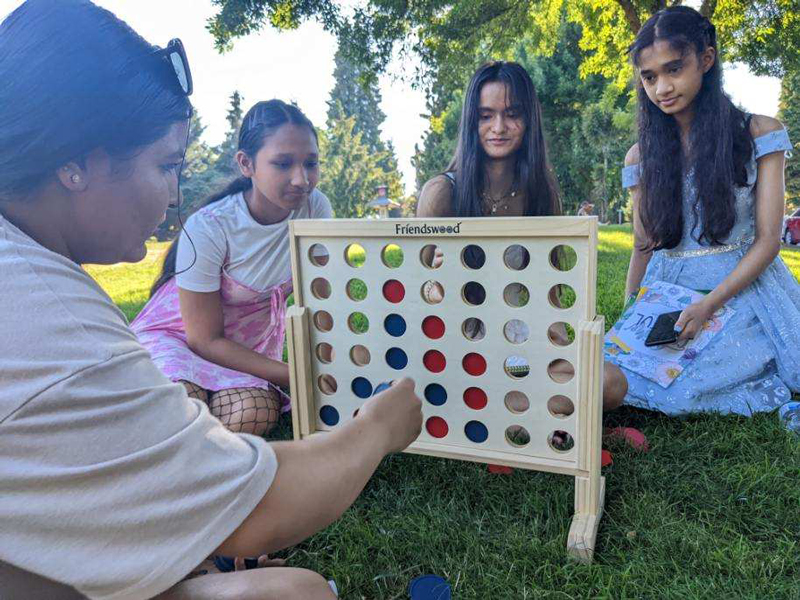
The YERS program brought local youth together to socialize and build connections.
The BCRC used SEEK funds to run a program that allowed youth to gather and interact with each other in their native language during the pandemic—combating the isolation they were facing—then once restrictions were lifted, giving them a chance to share the challenges of returning to in-person activities and programs.
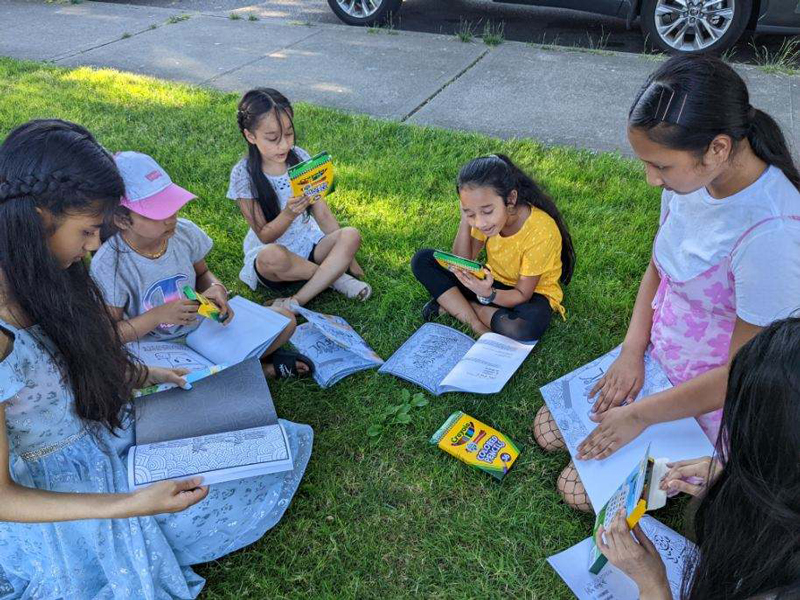
The YERS pilot program allowed youth to gather and interact with each other in their native language.
“During the pandemic, many youths were indoors and didn’t have physical activities for many months,” Kamal explains. “With only a few hundred families in the region, the chance for youth to interact with each other in their own language helped them build connections and a network. They could talk about the challenges they faced in middle school and high school. The summer program provided them [with] a chance to find solutions from each other.”
Because many refugees lack access to fresh and nutritious food, the BCRC summer program purchased bags of produce from local farms and distributed them to SEEK participants. These produce bags gave youth and their parents the opportunity to cook traditional foods at home as well as try out new fruits and vegetables grown in the United States. As a part of the food program, the BCRC took youth to visit the farms, to see where their produce bags came from, and learn about career opportunities in the agricultural industry.
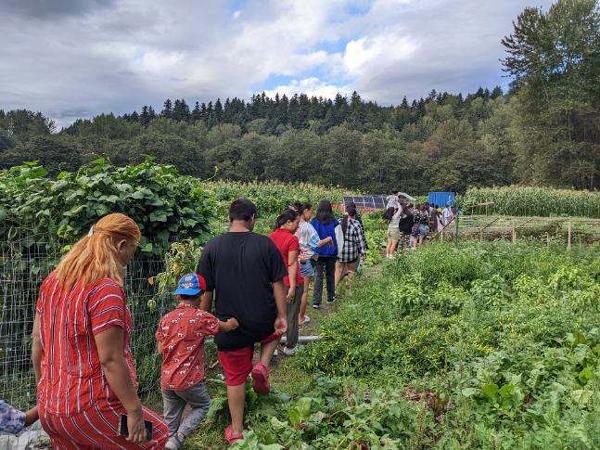
YERS participants had the chance to visit local farms to learn about job opportunities in agriculture.
The BCRC also took time to ensure participants had a chance to give back to their community and learn about their local environment. Kamal and his team partnered with Tukwila to complete an ivy and blackberry removal project in one of the community’s oldest parks. A trip to the beach and a kayaking excursion down the Duwamish River provided youth with a better understanding of the community’s history and the environmental challenges that exist in Washington.
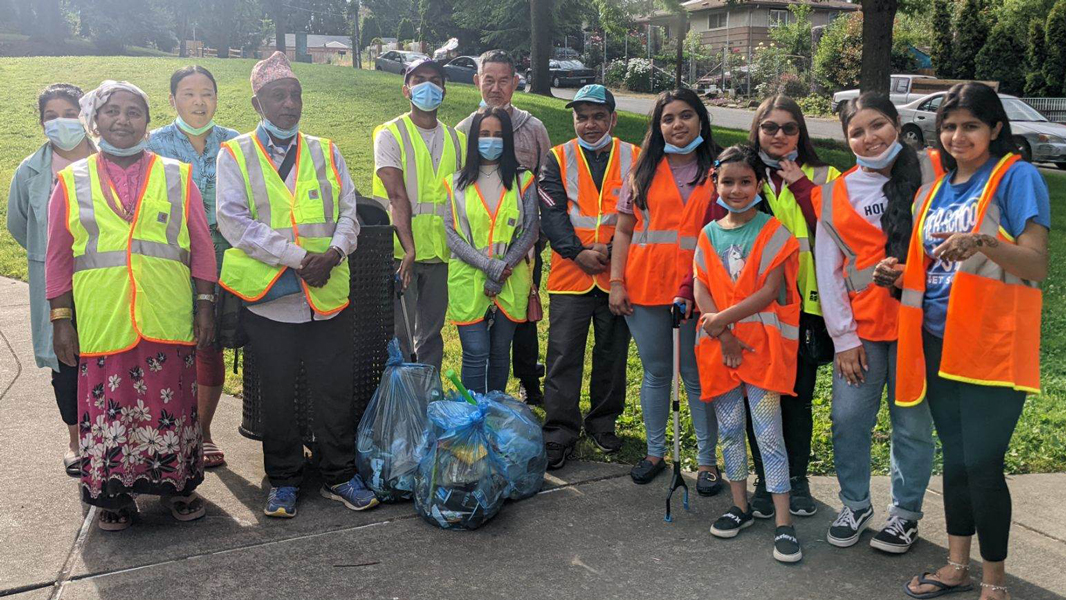
Giving back to the community was central to the YERS program. Youth and local leaders worked together to clean up a local park over the summer.
To connect SEEK participants with local government, Tukwila staff arranged a tour of a King County wastewater treatment plant that helped youth learn about the critical infrastructure needed to clean and distribute water in the community and potential careers in wastewater management.
While federal COVID-19 funding and SEEK funding were temporary programs, their impact on these young participants and their communities will be felt for years into the future. “There is a need for this type of program, and not just once, but every year,” Kamal adds. “These programs help youth cope with many physical as well as mental stresses they go through. Whether it is at school or at home, kids have so many challenges, and programs like ours help them be more open, joyful, and resilient.”